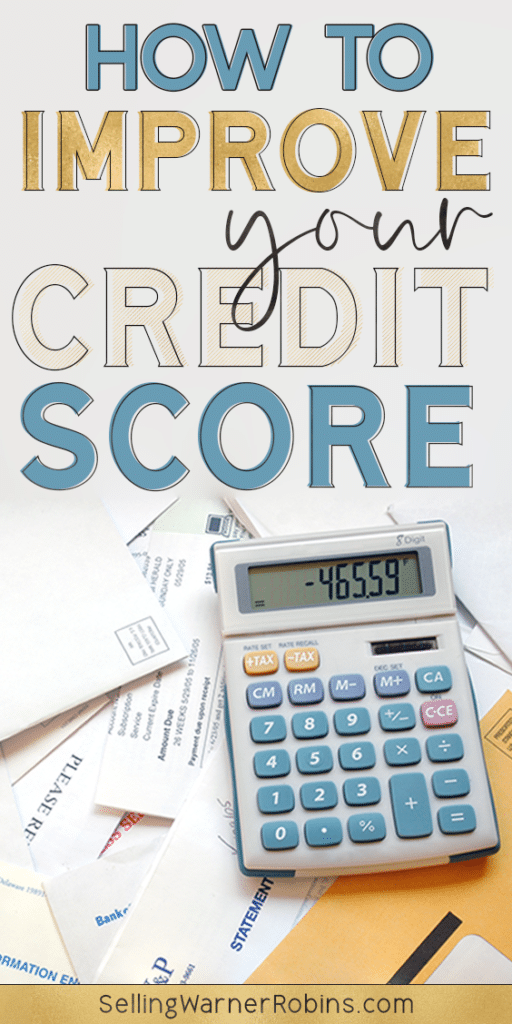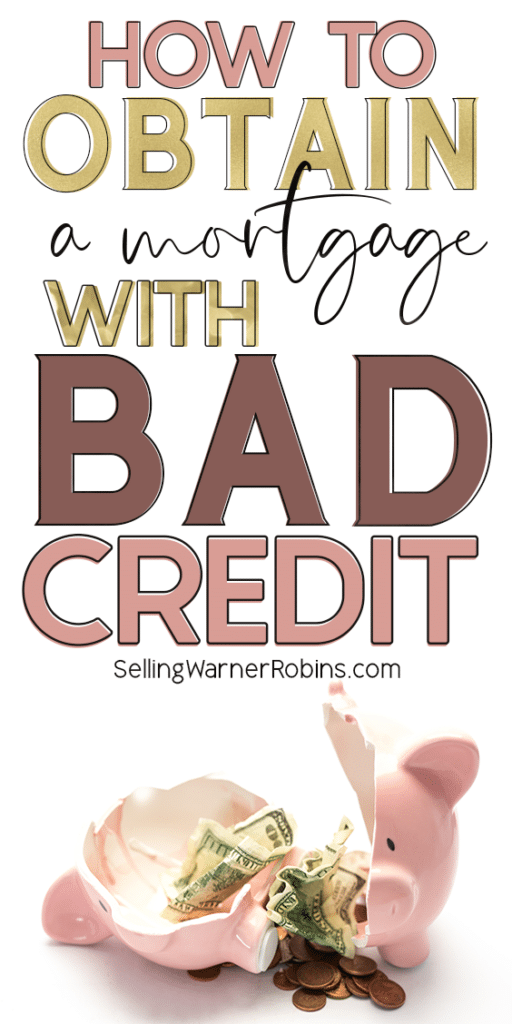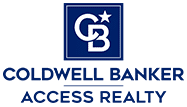Buyer Tips: Obtaining A Home Loan With Bad Credit

Not everyone has a high credit score. Nevertheless, bad credit is not a valid reason to stop pursuing your dream of buying a home. Even when your finances are not in the best shape possible, there are a few options you can explore to make your vision of owning a house come true. Follow along for savvy tips on obtaining a home loan with bad credit.
One of the most popular ways to do it is by getting a home loan, also known as a mortgage. You can take a home loan to buy a private property or a commercial one. It allows you to secure the funds necessary to buy a property at the cost of paying back the loan amount with interest to the lender over time.
Getting a Home Loan with Bad Credit
If you have bad credit due to bankruptcy or foreclosure or if you have been previously turned down for a loan, you may think obtaining a home loan with bad credit is impossible. Fortunately, this does not have to be the case. In fact, with a little research and hard work, you can highlight the “compensating factors” that will help lenders see that you are less of a risk than they might think.
Here’s a look at several compensating factors that you might want to submit with your home loan application in order to increase your chances of being approved for a home loan.
Get Your Credit Score Checked

The first step you need to take is to get your credit score checked. After all, you might not have such a bad credit score as you think.
Credit scores generally range from 300 to 900. Overall, the higher your score, the better your interest rate. To be considered someone who has a poor credit score, your result needs to be between 300 and 580.
Mortgage lenders usually calculate your credit score based on a few critical factors. Here are some of the most important ones:
Payment History
This factor is, for the most part, the main criterion for establishing your credit score. Lenders use your past credit history to determine whether you are a reliable borrower or not. They ask themselves the following questions:
- Will the borrower pay back what they are due on time?
- Can we trust the borrower that they will use the money we lend them for the stated purpose?
- What the borrower’s financial situation is right now, and how it changed over time?
Depending on which lender you choose, the most vital elements of your payment history might include credit cards, past loans (e.g., student loans, car loans, mortgage loans, etc.), finance company accounts, missed payments, or bankruptcies.
Keeping your payment history as good-looking as possible allows you to earn unique advantages, such as more extended repayment periods or lower interest rates. As such, you should put an extra effort to make it one of your strong points. Nonetheless, even if your payment history is far from perfect, your loan application may get accepted if the other aspects of your credit history are beneficial.
Amounts Owed
Another critical element for calculating your credit score is how much money you currently owe. Of course, the number of credit accounts you have open is not the determining factor whether you are a high-risk borrower or not. Nevertheless, it gives your lender the idea of how you manage your money.
For instance, if a lender deems you to be an over-spender, your chances of getting a loan may decrease. The same applies to the situation where you have multiple credit accounts and had a late payment on most of them.
Length of Credit History
It might seem a little counterintuitive, but the length of your credit history plays a vital role in determining your credit score. In general, the longer it is, the better. Why is that the case? If you have proven to be a reliable borrower time and time again, your next lender will have more trust in you, and your chances of getting another loan will go up.
New Credit
Besides the factors we mentioned above, many credit score calculators also take into consideration how many new credit accounts you have recently opened. If this number is too high, it can be a significant turn-off for lenders.
For example, if you suddenly decide to open five or more accounts in a short period, lending you money may become an excessive risk. If you want your credit score to be as high as possible, avoid opening too many accounts too rapidly.
Improve Your Credit Score
Now that you know how lenders calculate a credit score, you should make an effort to improve it. Even if you want to buy a home as fast as possible, taking some time to work on your credit is never a bad idea. Here is how you can make your credit score higher than ever:
- Pay down your debt: If you have revolving debt, consider paying it down. This way, you will not only increase your available credit but also lower your utilization rates.
- Pay your bills on time: Making on-time payments is the one thing you cannot overlook. Whenever your financial situation allows it, make your payment.
- Keep your credit cards open: As we already mentioned, the length of your credit history plays a notable role in establishing your credit score. Even if you do not use your credit cards, keep them open. It will keep your available credit high and improve your chances of getting a home loan.
- Build your credit file: If you do not have a rich credit history, your chances of getting a home loan can drastically decrease. As such, consider opening a new credit card or using the ones you currently have more frequently.
- Check your credit file for mistakes: Wrong address or phone number can negatively impact your credit score and damage your reputation as a borrower. To avoid this issue, double-check your credit for mistakes.
Remember, it is never too late to improve your reputation as a borrower. By putting an effort to improve your credit score, you show lenders that you are willing to go the extra mile to receive their trust.
Increase Your Available Credit

Another method you can use to boost your chances of getting a home loan is increasing your available credit. Fortunately, many companies allow for as many increases as you like without damaging your credit too much.
If you focus on increasing your credit, you send a clear message that you aim to grow your credit score and become a low-risk borrower. You can do this in several ways:
- Pay down your balances,
- Apply for a new credit card with a higher limit,
- Make a credit limit increase request,
- Wait for your limit to increase naturally.
Doing all of these things will decrease your credit utilization, leading to a good credit score. Consequently, it will make your task of getting a loan much more manageable and allow you to make larger purchases more efficiently. Besides, a higher credit score also will enable you to deal with sudden emergencies more swiftly.
Choose the Right Loan Option
Finally, another element that you need to consider is what loan option will be the best for you. One way to determine that is by thinking about your intentions. Here are some of the examples:
- Home purchase loan: You can take this loan when you intend to buy a home from an estate agent.
- Construction home loan: This loan covers the costs of building a house.
- Home improvement loan: You should opt for this type of loan if you want to renovate and improve your house.
Generally speaking, there are two main types of loans: government-backed and conventional ones. While the former usually have lower requirements and interest rates, the latter may be the better choice in some specific cases.
Government-backed loans that you should consider are FHA, USDA, and VA loans. All of them have one shared goal — making homeownership affordable for those who have lower income and bad credit.
Conventional Loans
Banks, credit unions, and mortg
age companies all offer conventional loans. These types of loans typically have fixed interest rates. It means that no matter how the circumstances will change in the future, you will have to pay the same amount of money throughout the life of the loan.
As government agencies do not offer and secure these loans, they usually have more strict requirements and are harder to get. As a result, to qualify for a conventional loan, you must have a high credit score.
If you wish to get a conventional loan with bad credit, it will probably be challenging. Even so, having a higher down payment or more income might be enough to get your loan application approved.
Moreover, keep in mind that the requirements you need to pass can remarkably change, depending on what lender you opt to contact. If your application gets turned down, ask for the reasons in writing. The response you get will help you determine whether you should apply for another conventional loan or start exploring other loan options.
FHA Loans
If you have little to no credit history and plan to buy your first home, you may qualify for an FHA loan. The Federal Housing Administration backs every FHA loan. Additionally, an FHA loan is specifically tailored for first-time homebuyers and customers with poor credit.
How these loans work is pretty straightforward. You do not receive any money from the Federal Housing Administration. Instead, it ensures that it will pay off your debt if you default on a mortgage. As such, your credit score and income play much less of a role in the lending process.
Some of the requirements you have to meet to get this loan are:
- Proof of employment,
- A FICO score of at least 580 (can be slightly lower with a 10% down payment),
- A debt-to-income ratio lower than 43%.
VA Loans
If you are a veteran or a member of the armed forces, a VA loan might be the perfect choice for you. The U.S. Department of Veteran Affairs, similarly to FHA, insures the loan instead of lending you money for your home.
To get a VA loan, you must meet some specific requirements, including minimum active-duty service requirement, proof of service, or a copy of your marriage license (if you are a spouse). Moreover, although there is no credit score requirement, you should have a credit score of at least 620 to ensure your loan application gets accepted.
One of the most important things you should note is that VA loans usually have a higher upfront fee than FHA loans. For some people, it might be a severe issue. On the other hand, they typically do not require a down payment or monthly mortgage insurance.
USDA Loans
The U.S. Department of Agriculture is the government body that backs every USDA loan. This type of loan allows you to buy a home in an eligible rural area with a $0 down payment. You have to meet specific guidelines to qualify for it, such as having a dependable income, U.S. citizenship (or permanent residency), and an acceptable credit score and history. Moreover, every USDA loan features a monthly payment, including interest, taxes, principal, and insurance.
However, much like an FHA or VA loan, a USDA loan offers you low mortgage interest rates. Sometimes, they can even be as low as 1%!
There are many USDA loan programs available. Here are a few of them that you might consider:
- Multi-Family Housing
- Single-Family Housing Guaranteed
- Single-Family Housing Direct
Keep in mind that USDA loan programs usually exclude metropolitan areas. As such, you should opt for this option only if you would be fine surrounded by pastures rather than pavement.
Bonus Bad Credit Recovery Tips

If you do not have a large amount of money saved up for a down payment, you can still show the lender that you have substantial financial assets available. You can do this by listing the value of your whole life insurance policy, your 401(k) and other retirement accounts. By highlighting these assets, you help the lender see that you have the money available if you are unable to make your payments.
Demonstrate Job Stability
If you have been working with the same company or within the same industry for several years, be sure to point that out on your loan application. If you have received regular pay raises, such as annual merit-pay increases or cost of living adjustments, you should point this out as well. The same is true of regular bonuses. In other words, demonstrating that you are likely to receive future increases in income will help offset the lender’s concerns about possible increases in property taxes, utilities and other expenditures.
Show You Have Discipline
By saving money in a savings account or by contributing regularly to a retirement account, you can demonstrate to the lender that you have the discipline, stability and consistency to responsible with your home loan.
Stay in One Place
If you have remained in the same home for at least three years, be sure to highlight this fact on your loan application. Lenders want to know that you won’t be a flight risk and that you can commit yourself to a home or community. By demonstrating that you can stay in one place for a period of time, you can increase your chance of gaining approval for a loan.
Save a Large Down Payment
While it is possible to obtain a mortgage loan with a down payment of as little 3.5 percent if you get an FHA loan, you will significantly increase the lender’s confidence in your ability to repay a loan if you save a much larger down payment. Generally speaking, you should save at least 10 percent of the home’s cost for your down payment, but you will increase your chances of being approved if you save well beyond this amount. If you can’t come up with all of the money on your own, look into the down payment assistance programs that may be available in your area.
Be Reasonable
When choosing the home that you want to buy, be reasonable in terms of how much you can afford. You may have to start off with something that is a bit smaller than what you want, but you can always move up to something bigger and better later.
Back Your Claims
Simply telling the lender that you were never late on rent or other obligations is not going to be enough to get your loan approved. Instead, bring proof to back up your claims. This may be in the form of bank statements, canceled checks and receipts.
Bad Credit Bottom Line
Obtaining a loan with bad credit is a daunting, but achievable task. The first thing you have to do is make a few essential adjustments, depending on your situation. Remember, no credit score is ever set in stone. It means that you can improve your score and move into a better credit range with only a few improvements, such as paying your bills on time and paying down your debt.
While some people struggle to get fast cash for selling a house, others find it challenging to secure a home loan. However, no matter what you might have heard, getting a bad credit home loan is easier than you think. Many people decide to select this option and reap the benefits it provides. You can join this group, provided you know what to do. Here is everything you need to know to get a home loan with bad credit.
Additionally, there are many loan programs created to help borrowers with bad credit. Do not be afraid to use them to your advantage. Instead, take some time to consider which loan option is the perfect fit for your situation and then apply for it. If you do just that, your chances of getting a home loan will undoubtedly improve. Good luck!
If you found this article on obtaining a loan with bad credit helpful, please consider sharing it so other consumers can also benefit from the information provided.
How to Recover from Bad Credit
About Anita Clark Realtor
Anita Clark has written 669 posts on this blog.
by Anita Clark Anita is a residential Real Estate Agent in Warner Robins Georgia, with Coldwell Banker Access Realty (478) 953-8595, aiding buyers and sellers with all their real estate questions on her Warner Robins blog.




